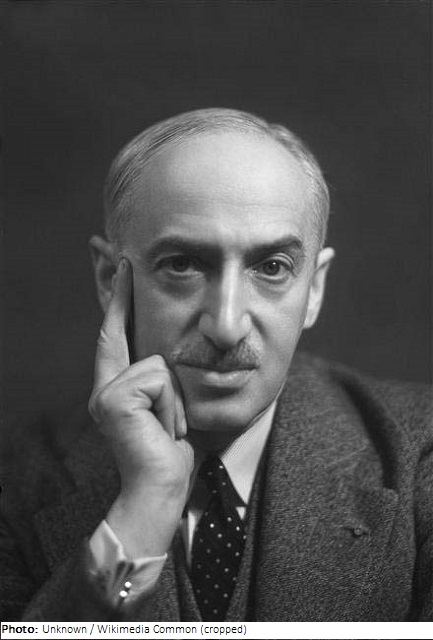
| Roles | Referee |
|---|---|
| Sex | Male |
| Full name | Émile Salomon Wilhelm (-André)•Herzog (-Maurois) |
| Used name | André•Maurois |
| Born | 26 July 1885 in Elbeuf, Seine-Maritime (FRA) |
| Died | 9 October 1967 (aged 82 years 2 months 14 days) in Neuilly-sur-Seine, Hauts-de-Seine (FRA) |
| NOC |  France France |
André Maurois was a French writer, literary scholar, and historian born as Émile Salomon Wilhelm Herzog, the son of a well-off textile manufacturer. His parents left their native Alsace in 1871 when it became part of the German Empire. An excellent student, he received a bachelor’s degree in literature and science and graduated with a degree in philosophy from the University of Caen. Additionally, he worked in his father’s factory from 1903-11.
In World War I, Maurois was initially employed as an interpreter, becoming a liaison officer for the British Army. In 1912, he married a Russian girl of Polish descent. After a nervous breakdown in 1918, she died of sepsis at the age of 32, leaving him to care for his three children. In his later novel Le cercle de famille (In the Circle of the Family), he portrayed the upper middle classes with their marital and family problems.
As a novelist, Maurois had his debut with Les silences du colonel Bramble (The Silence of Colonel Bramble, 1918), which was inspired by his experiences during the war. For this, he adopted the pseudonym Andrè Maurois after the name of a village where he was involved in a battle and after a cousin, who was killed in the war. In 1947, André Maurois became his legal name.
The success of the novel and a sequel four years later gave him the financial security to work as a freelance writer. After his father’s death, Maurois therefore also gave up the family business and devoted himself entirely to writing. He explored the fundamental human values in the everyday life of work and the struggle for existence with socialism as a means of preventing unnecessary injustice. He emphasized the importance of childhood experiences and the period of becoming conscious. Nevertheless, he argued that man himself should be responsible for his actions, deeds, and success.
In addition to his novels, Maurois also wrote biographies of the Shelleys, Proust, Lord Byron, the three Dumas, Balzac, Disraeli, George Sand, Napoleon, and Victor Hugo. While his biographies were widely acclaimed, his history books were more controversial, in particular, his patriotic Tragédie en France (Tragedy in France). In 1938, he was admitted to the Académie française.
In World War II, Maurois was appointed the French Official Observer attached to the British General Headquarters. After the Armistice in 1940, he was demobilized and went to the United States. Later in World War II, he served in the French army and the Free French Forces.
| Games | Sport (Discipline) / Event | NOC / Team | Phase | Unit | Role | As | |
|---|---|---|---|---|---|---|---|
| 1932 Summer Olympics | Art Competitions |  FRA FRA |
André Maurois | ||||
| Literature, Open (Olympic) | Final Standings | Judge |